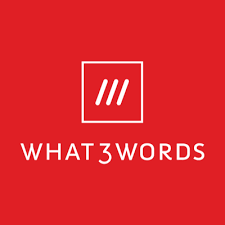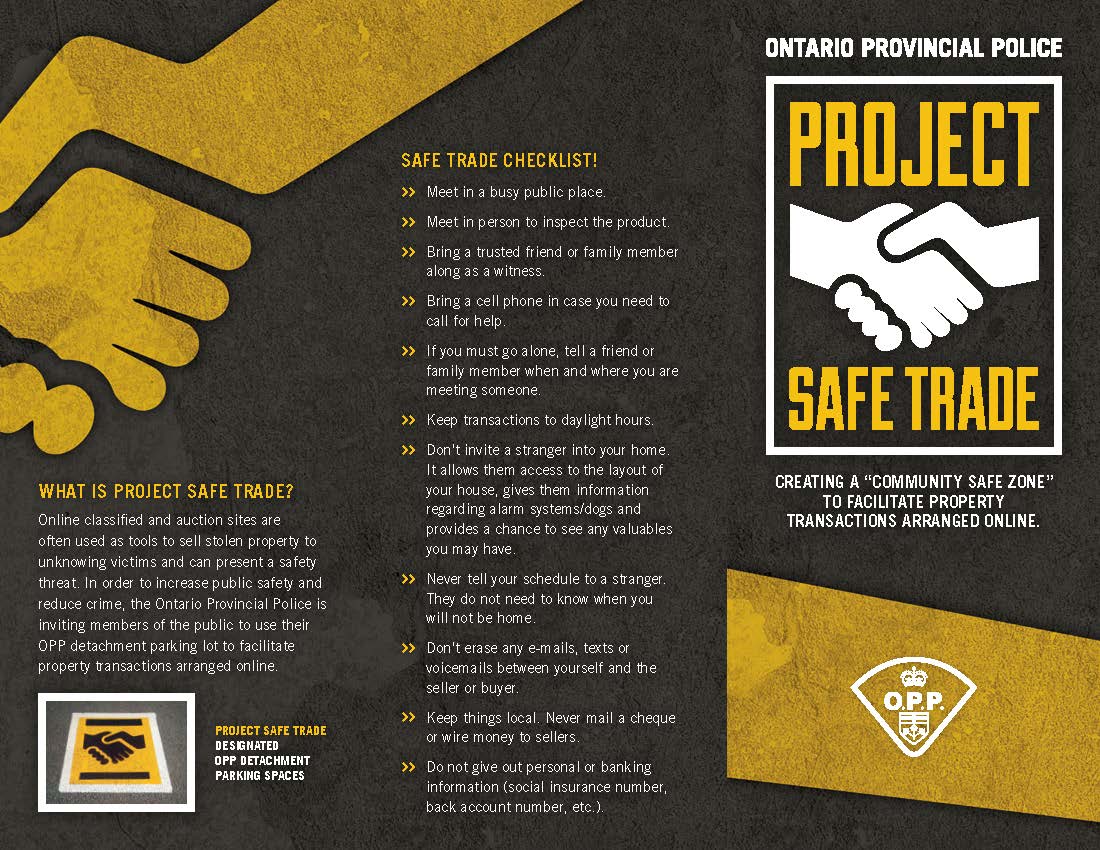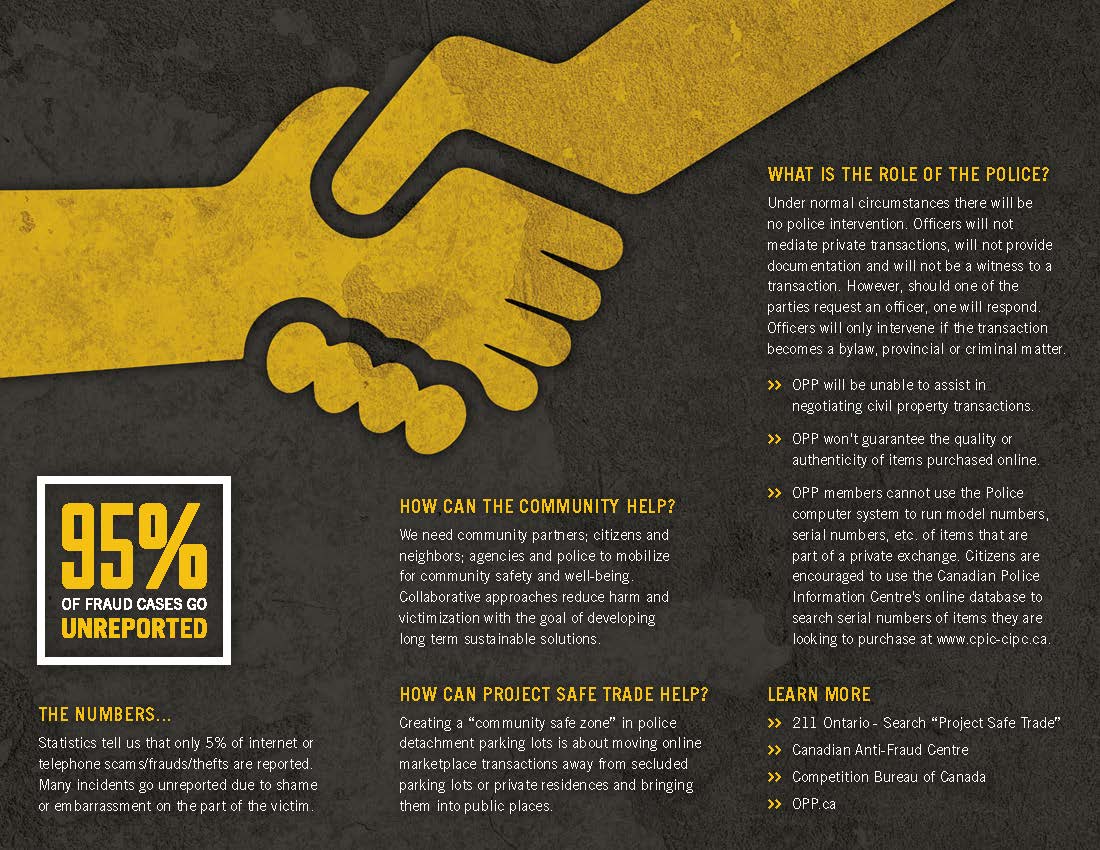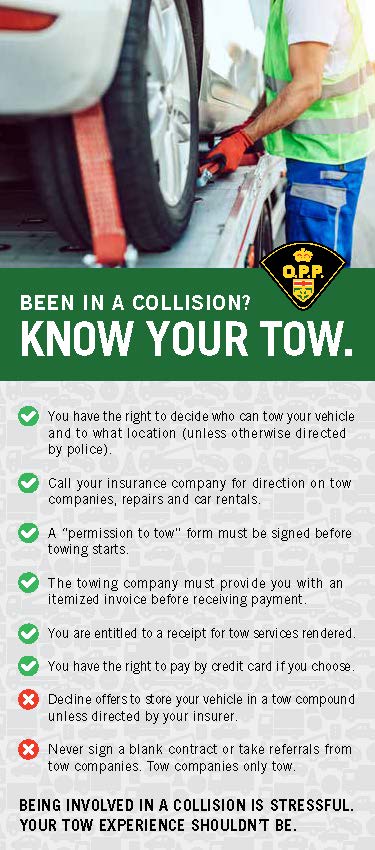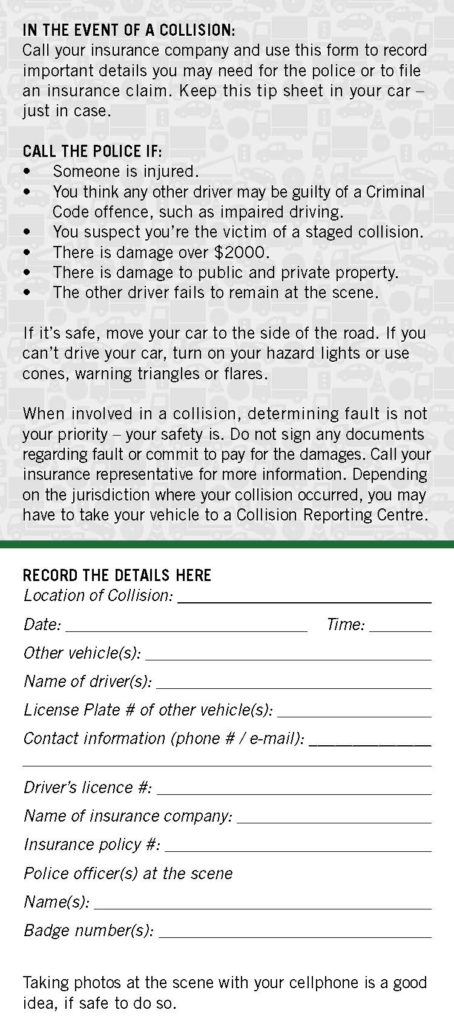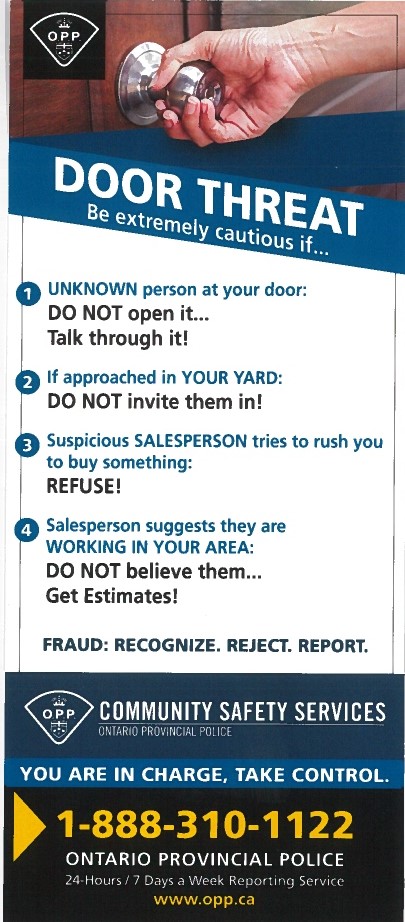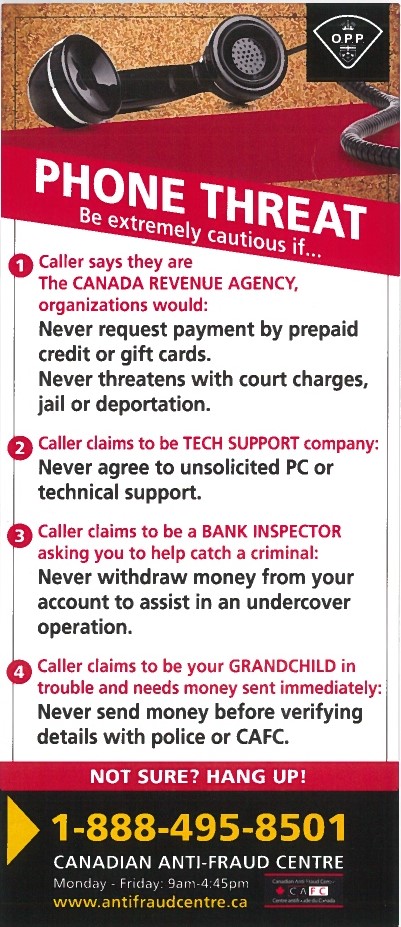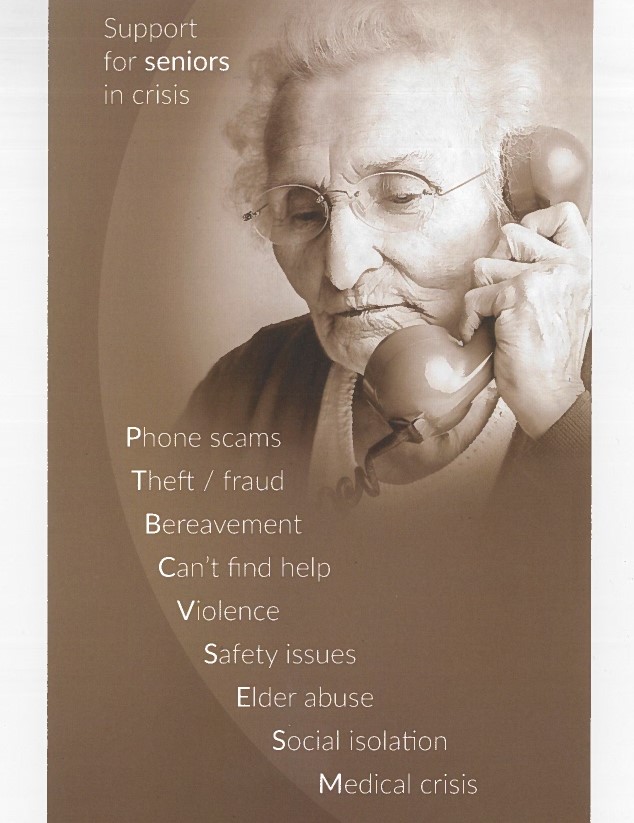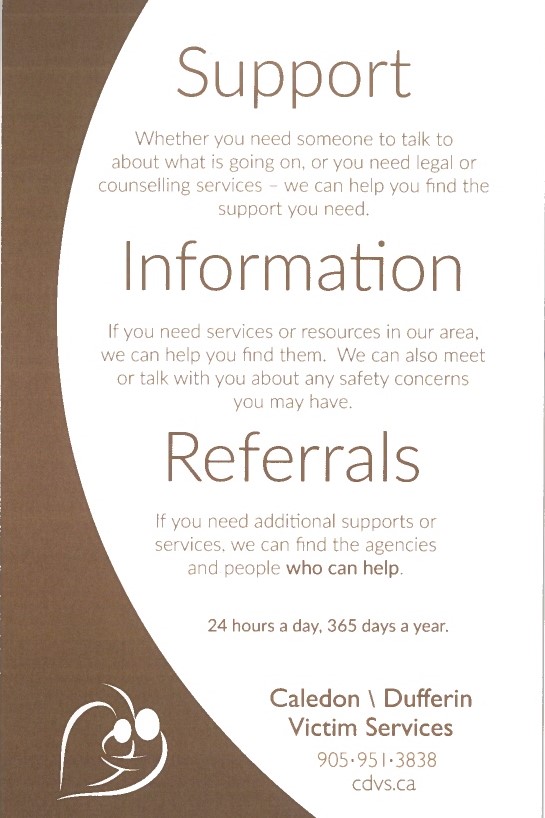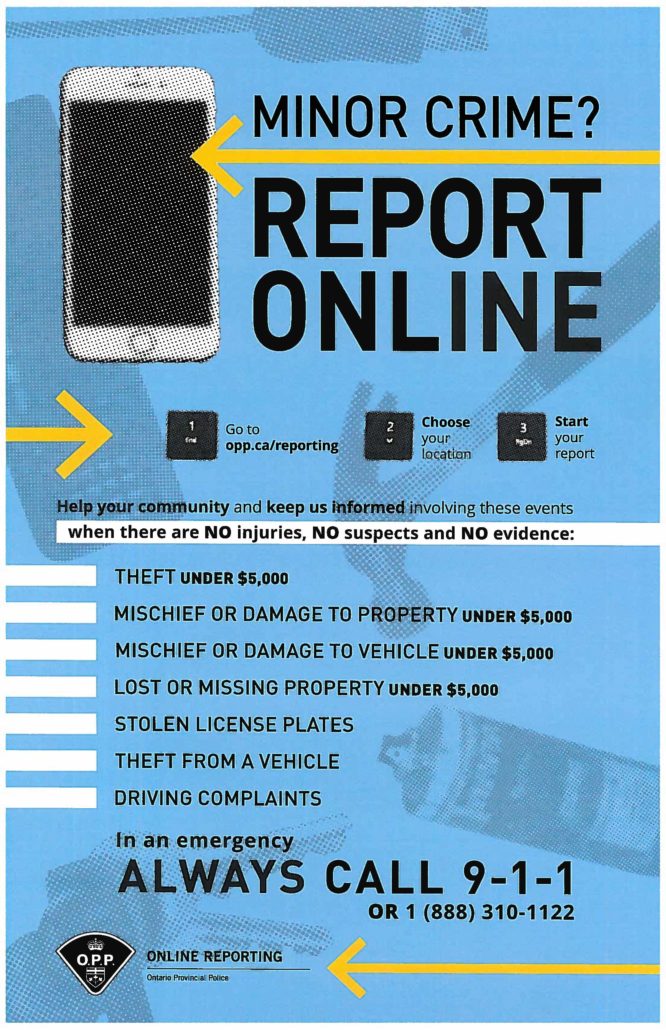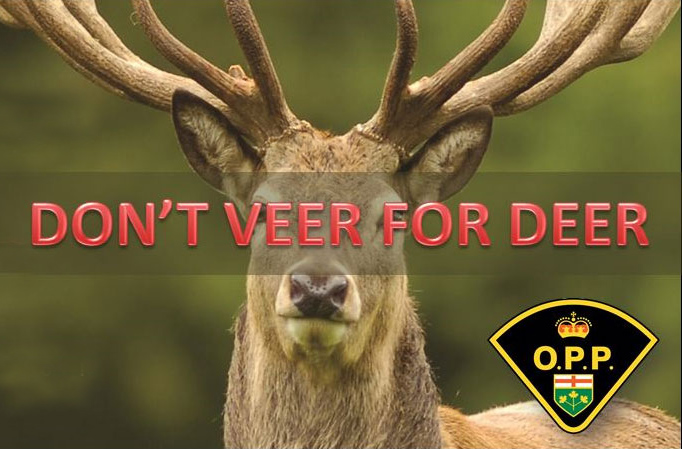NEW TOW REQUIREMENTS
The OPP is collaborating with the Ontario government, police and other public safety partners with the goal of enhancing consumer protection in the towing industry. Through measures such as the “Know Your Tow” brochure and informing towing companies directly, the OPP is educating consumers and tow operators about their respective rights and responsibilities, including having tow companies provide an estimate up front.
Tow truck drivers are required to provide the vehicle driver or owner who is operating a vehicle for personal, family or household purposes (not business) with an estimate of the cost to tow and store the vehicle (per day). For non-legislated tows, when the driver is dealing directly with the tow company and it is safe to do so, the vehicle driver or owner may refuse the service of the tow truck driver or towing company based on the estimate provided.
There are two types of police-requested tows:
- Legislated tow: a tow is requested by police as a result of a legislated authority (e.g. vehicle impoundment for impaired, stunt driving, or evidence).
- Non-legislated tow: requested by police on behalf of a vehicle owner who is not present or cannot authorize the tow (e.g. is injured or incapacitated).
Any tow regulations not in the form of requested by police will have to be regulated by local by-law.
For more information: http://opp.ca/index.php?id=115&lng=en&entryid=5fc6910e5f77181383415503
ONTARIO TOW TRUCK LAWS – REGULATIONS
If you’re in a collision or encounter problems with your vehicle and require a tow truck, the new regulations are in place to protect you. They require tow and storage providers to:
-
Have permission from the consumer/driver or someone acting on their behalf before towing or storing a vehicle.
-
Publicly disclose rates and other information such as the provider’s name and telephone number on tow trucks as well as in places of business.
-
Accept credit card payments from consumers.
-
Notify consumers where their vehicle will be towed.
-
Allow consumers to access their towed vehicles to remove personal property at no charge between 8 a.m. and 5 p.m. on all business days.
-
Give consumers an itemized invoice listing the services provided and costs before receiving payment.
-
Disclose if they are getting a financial incentive for towing a vehicle to a particular vehicle storage facility or repair shop.
Tow truck scams became too prevalent to ignore any longer
TOW TRUCK SCAMS
As a motorist, there are several common tow truck scams that you should be aware of, including:
1. SCANNING
This refers to when a towing company uses police scanners to monitor accidents and show up at the scene unannounced. The tow company often will try to convince the now vulnerable driver to get towed to a body shop, even if it’s unnecessary.
2. INFLATED FEES
Sometimes, tow truck companies will increase fees beyond auto insurance policy limits. Often times this will add expensive, unnecessary fees like gate, labour, and release fees to increase overall prices.
3. ADDED DAMAGE
In extreme scam cases, certain body shops will give tow truck drivers a commission for bringing them business. These body shops will often hold cars to drive up storage prices and can even increase damage and repair costs.
To avoid scams, never utilize a tow truck that shows up unannounced, research body shops ahead of time and only use ones you trust. Also, it is your right to request a quote and sign off on it before agreeing to using a towing service.
Tow trucks get you to your mechanic of choice when you’re unable to get there on your own
-
-
Sixteen Ontario municipalities currently have by-laws that license towing businesses.
-
-
The province is also taking action to improve the safety of tow trucks and their operators by including tow trucks in the province’s existing Commercial Vehicle Operator’s Registration system as of January 1, 2017. This change will improve road safety through government monitoring and enforcement measures.
For further information on what to do if you are involved in a collision, please visit the OPP website.
ONTARIO PROVINCIAL POLICE SAFEGUARD ONTARIO PROPERTY SECURITY PROGRAM
For more information on SafeGuard Ontario, please click on this link.
Watch the video below on how to safeguard your home:
